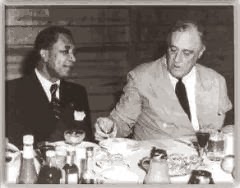 Each morning the students of Ricks Institute gather
at the flag pole, standing in rank by class, for the start of a new day. At
7:30 the day is young and the promise of dawn is fresh.
Each morning the students of Ricks Institute gather
at the flag pole, standing in rank by class, for the start of a new day. At
7:30 the day is young and the promise of dawn is fresh.
With the exception of the Pledge to the Flag of the Republic of
Liberia—to which we will turn in a future post—the daily ceremony is sung.
Every day six hundred or so voices fill the air with “the school ode!” as the leader
of the ritual announces it.
Most days the same choir successfully completes a rather
difficult anthem, “All Hail, Liberia, Hail.” It is difficult because of the
range required for voices of all ages. It is made more difficult by a dramatic
pause mid-way through (sometimes I see the younger children counting to four to
be sure not to jump in too soon).
A few days the fading dawn is greeted with “The Lone Star
Forever,” with the memorable and apt words
When freedom raised her glowing form
on Montserrado's verdant height,
She set within the doom of night,
'midst low’ring stars and thunderstorms
the star of liberty—and seizing from the waking morn,
its burnished shield of golden flame,
she lifted in her proud name
and raised a nation long forlorn
to noble destiny.
 |
| 18th President of Liberia 1930-1944 |
The patriotic hymn was written by Edwin James Barclay
(1882–1955), Liberia’s eighteenth President. His administration was born in
scandal and rested in the glory of Liberia taking her place on the global stage
with the Allies in World War II. The immediate predecessors (President C. D. B. King and Vice President Allen Yancey) of Barclay’s
administration were swept away when their complicity in a later-day slave trade
was exposed (King and Yancey allegedly benefited from corvée associated with the domestic workforce and outright slave trading
with the Spanish). Secretary of State at the time, Barclay was selected to
finish King’s term; he was elected in 1931.
 |
| Presidents Barclay and Roosevelt in 1943 |
Barclay’s patriotic
hymn focused upon the dawn of Liberia in the 1820s, but the song’s power is in
part that it also touches upon so many new dawns that Liberia has greeted in
her troubled history.
 |
| Daniel Bashiel Warner Liberia's 3rd President 1864-1868 |
Liberia’s third President, Daniel B. Warner [image] wrote
“All Hail, Liberia, Hail.” It is a song that captures the Zeitgeist of mid-nineteenth century for the hope of the end of
slavery and the greater hope of a land of freedom for “a race benighted race”:
All Hail, Liberia, Hail!
All Hail, Liberia, Hail!
This glorious land of liberty shall long be ours.
Though new her name green be her fame
And mighty be her power
In joy and gladness with our hearts united
We'll shout the freedom of a race benighted
A home of glorious liberty by God's command.
Liberia was the focus of hope for abolitionists, slaves in
“the new world,” and free people of color for whom freedom already being
compromised by political and economic realities in the Americas that were
determined to establish a two-tiered society based upon race. And, for most of
the hopeful, it was “God’s command” that would bring their hopes to fruition.
“And mighty be her power. And mighty be her power.”
In the midst of persistent challenges, Liberians hold to the
claim that Liberia is blessed by Providence with “mighty . . . power.” When I
hear the children sing those lines I know that they believe in the power (pun
intended) of the song. I know it because, even in the midst of confusion and
poverty and struggle, the children and their teachers and their public leaders
refuse to capitulate to the despair that lurks in every shadow.
All Hail, Liberia, Hail!
All Hail, Liberia, Hail!
In union strong, success is sure
We cannot fail
With God above our rights to prove
We will over all prevail
With hearts and hands, our country's cause defending
We'll meet the foe with valor unpretending.
Stella Polaris, O, Ricks Institute,
Thy way to greatness and prosperity;
Ye we point to glorious Ricks for fame and victory.
With God before us, success we are sure,
Upward and forward the victor we go;
Therefore with uplifted eyes
We are sure to win the prize.
On the days when the students sing the Ricks Ode and The
Lone Star Forever, I am always struck by how the songs carry the singers and
listeners from the dark of night—the invocation of the North Star in the Ode—to
the dawn of perpetual new days—“and seizing from the waking morn' . . .
[Freedom] lifted in her proud name and raised a nation long forlorn to noble
destiny” from Lone Star.
Taken together, these three songs have a power that, I hope,
will sustain the students, faculty at Ricks, and any other who has the
opportunity to be present for the morning flag ceremony.


No comments:
Post a Comment